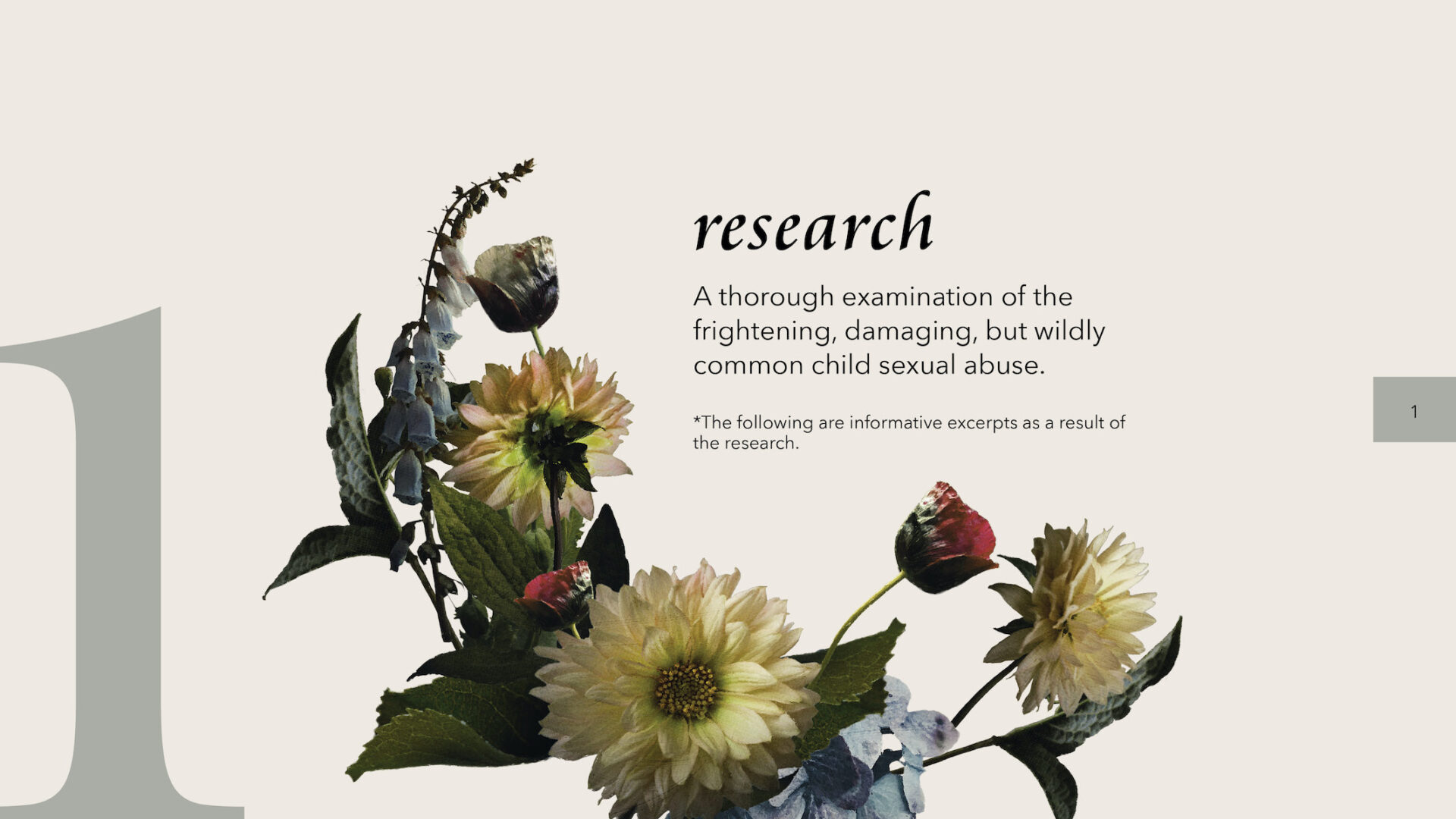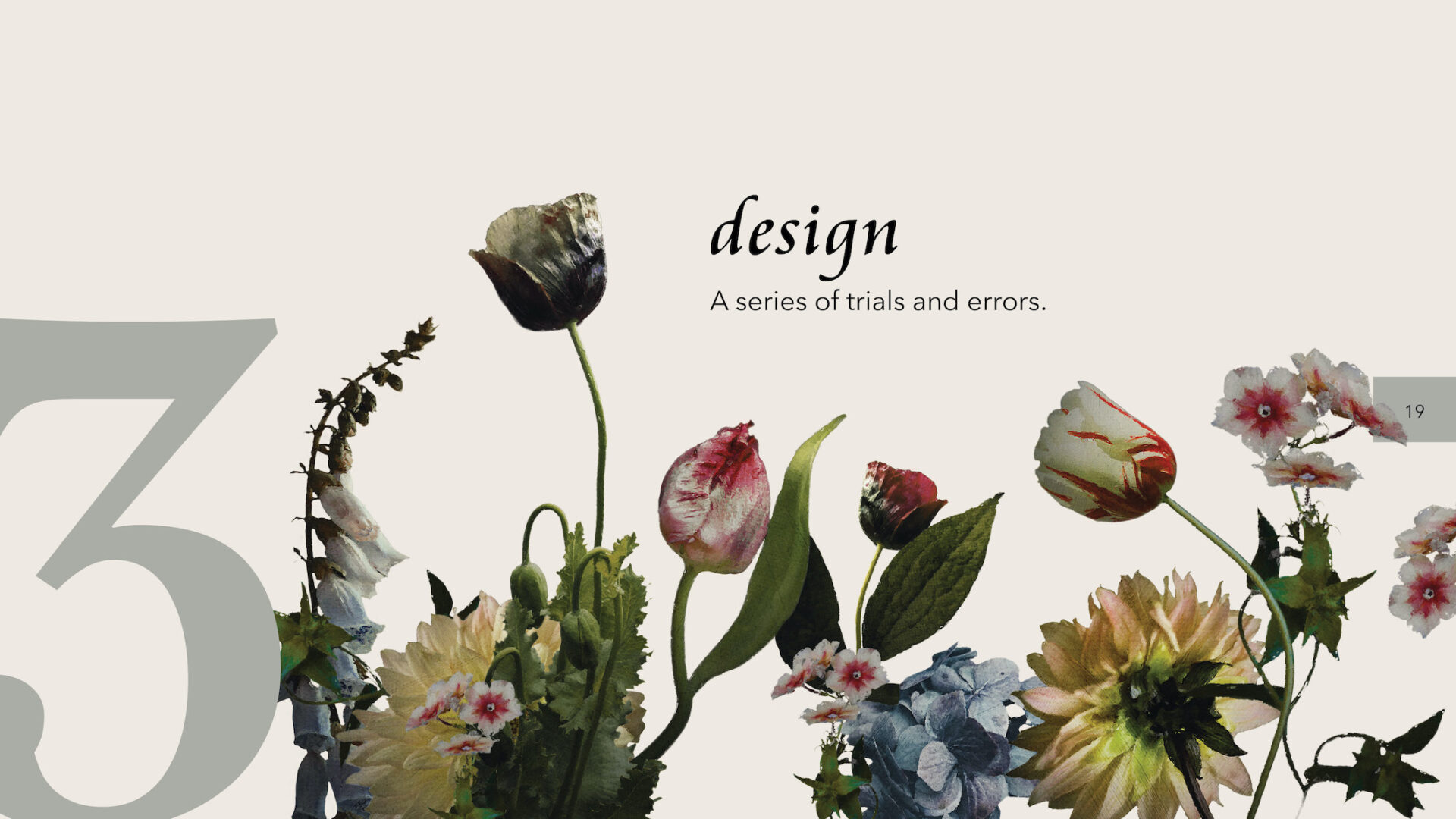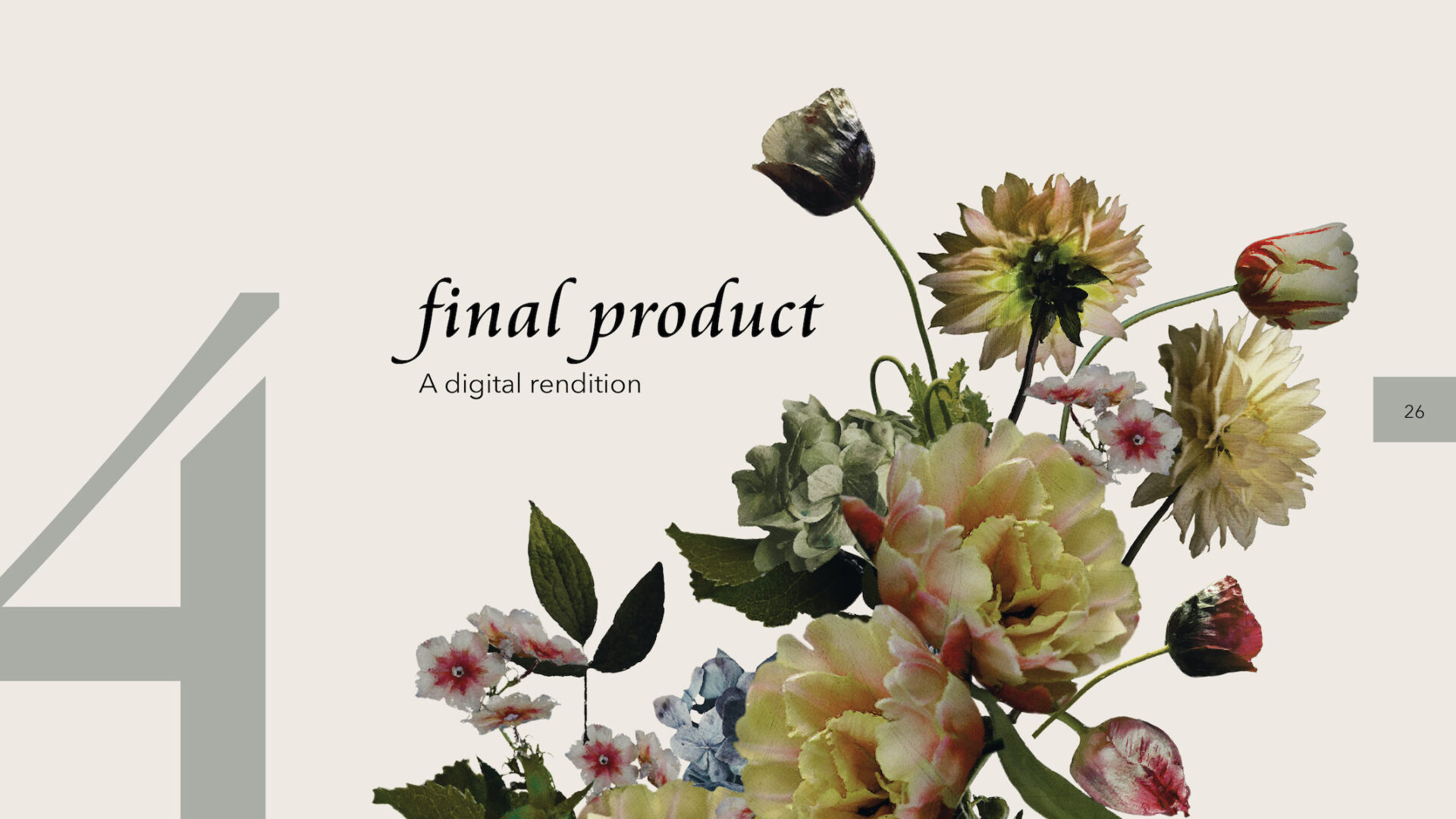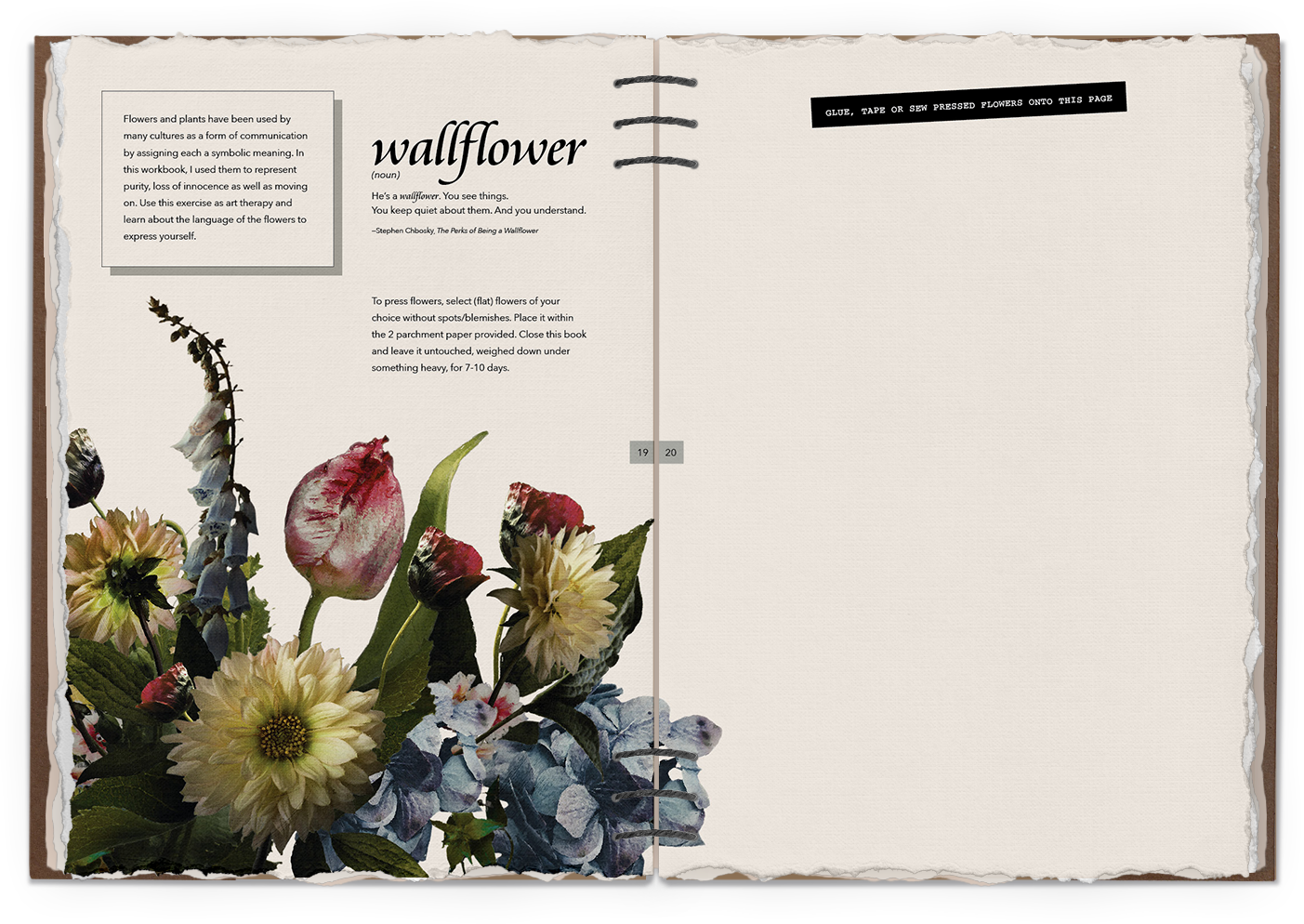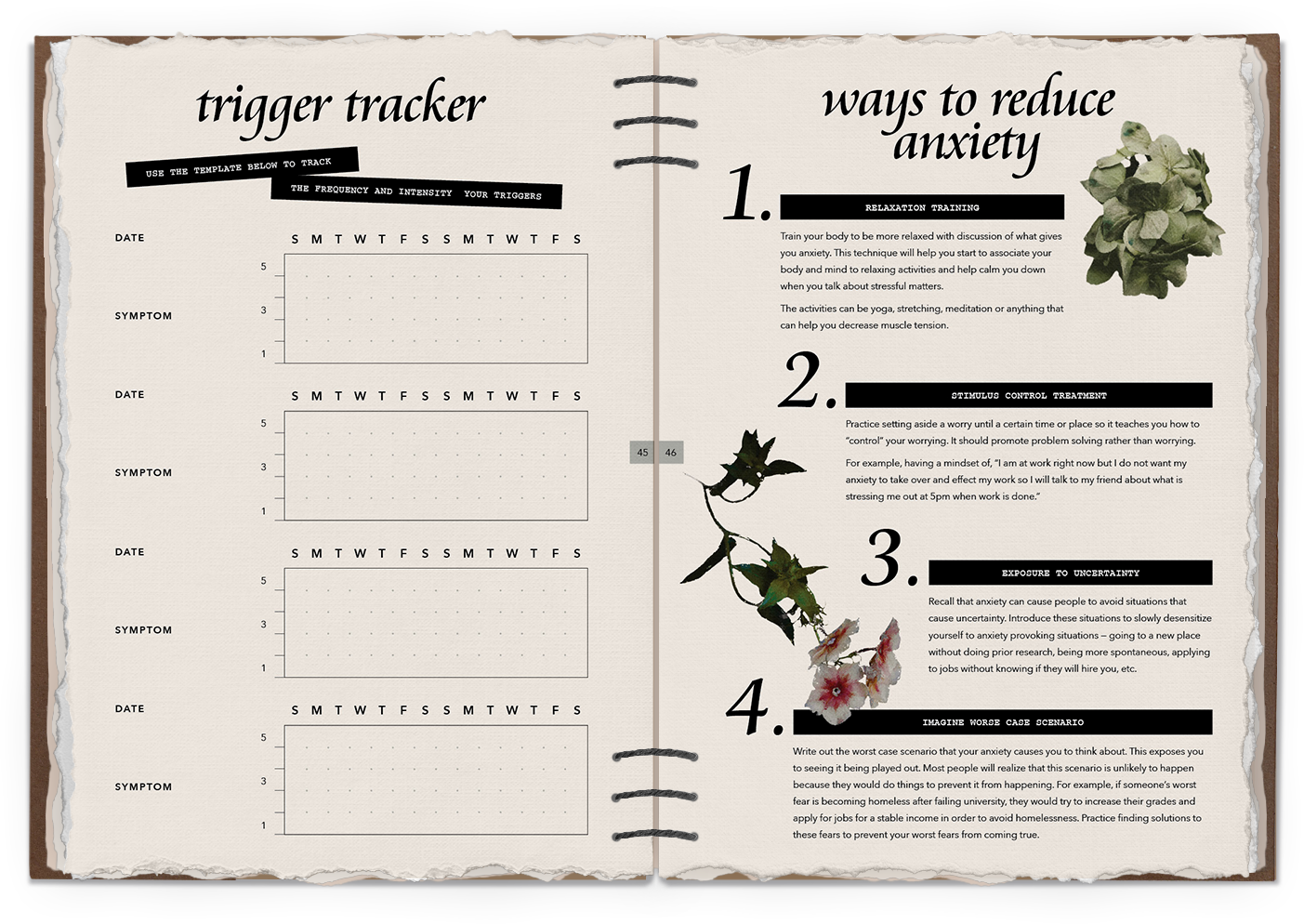
csa
An experimental workbook providing an alternative method to healing from childhood sexual abuse (CSA).
View the final product on issuu.com
ROLE
Ideation, Research
Model, Layout & Design
TOOLS
Photoshop
InDesign
CATEGORY
Editorial
Book Design

Each chapter is associated with one colour, one concept, and one story. The first being innocence, the second representing the abuse, and the third is the present and the process of healing.
Problem
The target audience for the workbook "csa" is a demographic of predominantly young girls and women with a history of childhood sexual abuse (CSA). The age group ranges from 13-50 years old. The psychographic includes:
CSA survivors who cannot afford or would prefer not to spend money on therapy
survivors who are scared of the stigma surrounding therapy
family members / friends / significant others of CSA victims who want a reference to gain insight of their loved one’s abuse
The goals of this workbook are to give survivors the reassurance that their feelings and behavioural attributes are a direct consequence of abuse, give them the opportunity to regain a sense of control through an artistic therapeutic process, and help them develop self-efficiency skills in case of emergencies. This workbook is a cost-effective, alternative tool for survivors to develop personal skills; to become self-sufficient by regaining a sense of control and resolve feelings of abuse.
Why a Workbook?
As a survivor of CSA myself, I had always lived with the memories of it in the back of my mind. I never received help or guidance and I quietly kept it as a well-guarded secret. As I got older, I started to notice certain bad behaviours or traits I have accumulated over the years as a direct result of the abuse. Although aware, I felt no urgency to fix it. I eventually found the courage to confide in friends and loved ones and realized I was not alone. Upon researching, I discovered that approximately 25-35% of women and 10-20% of men in the general population were sexually abused in childhood. A number of long-term effects can result from CSA, such as post-traumatic stress disorder (PTSD), psychological as well as interpersonal problems, self-abuse, a tendency to self-sabotage (daily life and relationships) and physical pain. Survivors are at a greater risk of illness such as heart disease, cancer, and chronic stress taking a physical toll on their bodies.
Solution
The catalyst for the creation of this workbook is my realization of the stigma surrounding self-care in my family and Asian culture as a whole. I looked within and asked myself why I have never attended therapy myself. I felt unease and a great deal of uncertainty even to this day when I broach the topic of receiving care. I did not even know the words to describe depression, anxiety or postpartum to my mother and reluctantly settled on "sad" to describe my feelings despite being fluent in our native language. This workbook is my personal solution to survivors like me. Survivors that can relate to my experiences. I am offering a hand to help others to take the first step.
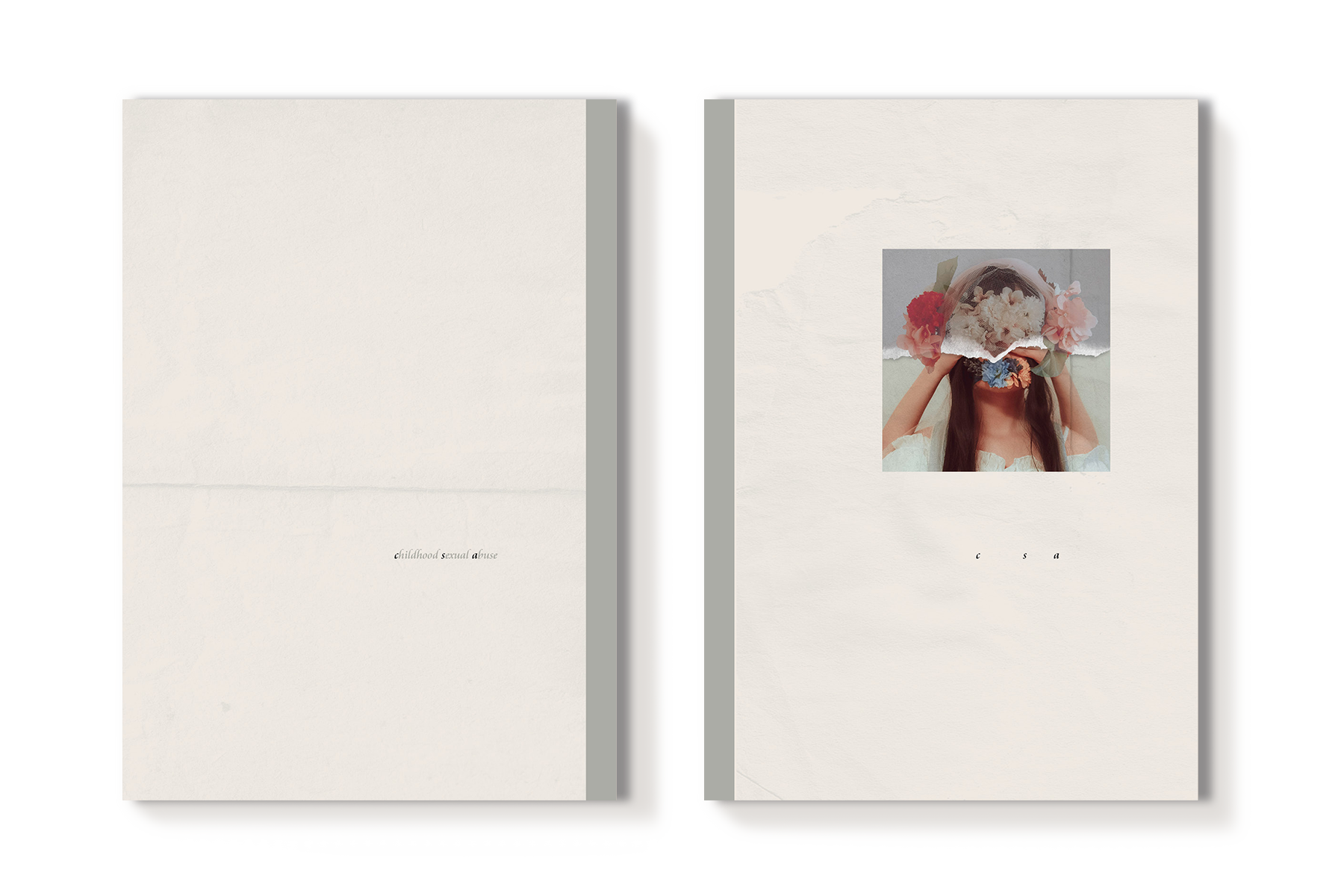

Through a unique lens filled with fantastical oddity, wonderment, and just a hint of darkness, I study and comment on socio-political issues in my design.
© 2024 Ngoc Dao.
